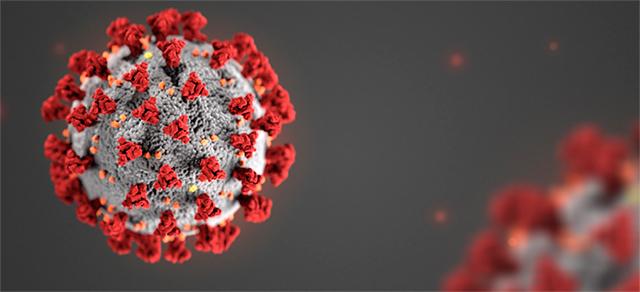Fortunately, none of the mutations have increased transmissibility, according to a new paper which looked at virus genomes from over 46,000 people with COVID-19 from 99 countries.
Coronaviruses like SARS-CoV-2 are a type of RNA virus, which can all develop mutations in three different ways: by mistake from copying errors during viral replication, through interactions with other viruses infecting the same cell (recombination or reassortment), or they can be induced by host RNA modification systems which are part of host immunity (e.g. a person's own immune system).

Most mutations are neutral, while others can be advantageous or detrimental to the virus. Both neutral and advantageous mutations can become more common as they get passed down to descendant viruses.
The research team from UCL, Cirad and the Université de la Réunion, and the University of Oxford, analysed a global dataset of virus genomes from 46,723 people with COVID-19, collected up until the end of July 2020.
The researchers have so far identified 12,706 mutations in SARS-CoV-2, the virus causing COVID-19. For 398 of the mutations, there is strong evidence that they have occurred repeatedly and independently. Of those, the researchers honed in on 185 mutations which have occurred at least three times independently during the course of the pandemic.
To test if the mutations increase transmission of the virus, the researchers modelled the virus's evolutionary tree, and analysed whether a particular mutation was becoming increasingly common within a given branch of the evolutionary tree - that is, testing whether, after a mutation first develops in a virus, descendants of that virus outperform closely-related SARS-CoV-2 viruses without that particular mutation.
The researchers found no evidence that any of the common mutations are increasing the virus's transmissibility. Instead, they found most common mutations are neutral for the virus. This includes one mutation in the virus spike protein called D614G, which has been widely reported as being a common mutation that may make the virus more transmissible. The new evidence finds that this mutation is in fact not associated with significantly increasing transmission.
The researchers found that most of the common mutations appear to have been induced by the human immune system, rather than being the result of the virus adapting to its novel human host. This situation is in contrast with another analysis by the same team of what happened when SARS-CoV-2 later jumped from humans into farmed minks.





Comments